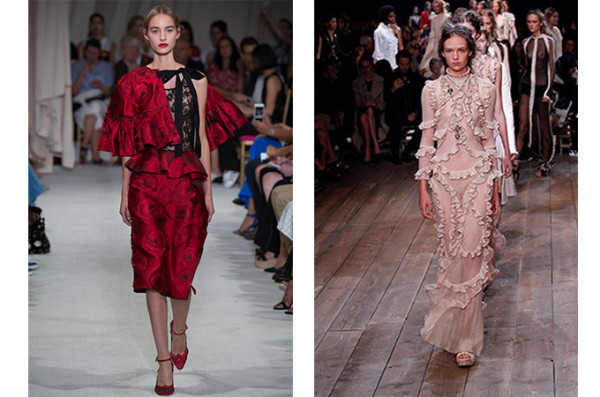How Was Hillary Clinton Defeated?
For many, a shocking election outcome demands introspection.


I woke up this morning hoping it had all been a bad dream. But it was true: Donald Trump had won the election, and to me and most of the people I know it was a devastating outcome. My first thought was, how could we have let this happen? How will we tell our daughters that after almost a quarter of a millennium this country still isn’t ready for a female president—perhaps one of the most qualified candidates we’ll ever see? How will we explain to our sons that abusing women and rallying racists can cut a straight path to the White House?
It is almost unspeakable.
I peeked into the bedroom where my 14-year-old daughter was still sleeping, and where she had retreated after a long, uneasy election night. What was supposed to have been a celebratory evening for our family had quickly turned into a nightmare. I decided to let her sleep a few minutes longer.
All day I’ve been playing out in my head the last few months’ political events, trying to figure out why Hillary Clinton, the Democratic party, the media and, for God’s sake, good reason itself had failed so miserably. How scared should we all be now that our nation had chosen a misogynistic, racist incendiary with no political experience over an intelligent, hard-working woman who’s dedicated her life to civil service? Right now, it feels like the whole country has gone mad, and perhaps it has. But amidst the heartbreak and the outrage, I am wondering what we can learn from this unexpected turn of events.
I started thinking about an essay my daughter recently wrote about failure, about how mistakes are crucial to personal growth and can sometimes teach you more than your successes can. Last night’s mistake was a doozy, America. But it doesn’t have to be fruitless.
If ever our country has been given a wake-up call, an opportunity for introspection, this is it. It’s a wake-up call for the Democrats, who failed to recognize the power of the movement Trump had conjured, a movement that has been brewing throughout this diverse yet increasingly divided country for years. It’s a wake-up call for the media, who during the campaign covered Trump more like the businessman and reality star he was than a contender for the world’s highest office, holding him to a much lower standard than they did Clinton. It’s a wake-up call for those of us who lounged in our bubble at the onset of this election, certain of our impending victory over the “bad guy.” And, most of all, it’s a wake-up call for those Americans who did not vote yesterday, who took for granted their most powerful civil right, either because they were too busy playing Pokémon Go or they felt “both candidates were horrible,” which is the worst excuse ever.
Dare I say it, the election results are also a wake-up call for women and minority groups who, when you get down to it, could have done more for what should have been their cause. I wonder what the suffragists—who survived police brutality and imprisonment in order to get the 19th amendment passed—would say if they were alive today and learned that only 54 percent of women in this country backed Clinton. I’m not certain she was the best candidate the party could have selected. But I believe she is a good person with over-the-top credentials, a sharp and just mind, and an unsurpassed work ethic. The fact that her shortcomings were even compared to Trump’s outrageous faults was ludicrous.
But the wake-up call comes a little late. Now, what we must do is try to understand why even one woman in this country would decide to wear a “Make America Great Again” cap rather than ensure Roe v. Wade doesn’t get overthrown. We need to deconstruct how this election was as much about class as it was about gender and race. We need to understand how many folks in this country have not recovered from the 2008 economic crisis and feel more marginalized and scared than ever, and how Trump ruthlessly exploited that fear. We need to understand that, like it or not, many Americans think free trade has gone too far, that immigration threatens their livelihood, and that their families are slipping one rung at a time down the socioeconomic ladder. We need to understand that many people who lack political and economic power see politicians, journalists and the corporate elite as “the man” who will never offer them a seat at the table. And they are probably right.
Clinton was aware of these mass frustrations, but she underestimated them. Although I believe that, had she been elected, she would have done a better job fixing America’s inequalities than Trump will, in her campaign she took the wrong approach by adopting a “good reason will prevail” faith. She believed, as many of us did, that the American people would ultimately make the right decision. But what she really needed to do was strengthen her own message. She needed to stand for something people could relate to and cling to. She needed to portray herself as someone more than just “the one better than the other guy.”
Sure, she was the one with experience. The one who was appalled at the idea of building a wall between us and Mexico. The one who never called a woman a pig or made an unwanted sexual advance. If this election revealed anything, it’s that many people in this country don’t have the luxury of taking the high road because they are preoccupied with making their mortgage payments. They want someone who seems to understand them and can assure them the American dream is, somehow, still attainable. While we Democrats clung to our belief that “we are the emotionally intelligent ones,” Trump was the one truly connecting with people.
The problem is, we couldn’t imagine so many people would connect with hatred, violence, bigotry and misogyny. And the irony is that the very people Trump promised to help may never benefit from his presidency. The fact is, the richest people in this country are going to pay fewer taxes in a couple of months, and the gap between the haves and have-nots is going to widen. That’s why I wish Clinton had, during her campaign, stopped being a lady for five minutes and turned into a tigress. A tigress who could fiercely point out how Trump was duping everyone. Duping them by selling them a nostalgic America that cannot possibly be resurrected. Duping them by lacking any concrete plans to create jobs, fix healthcare or mend foreign policy. Duping them by pitting them against “insider” types that, really, are no different than him—except they live in Washington. One middle-class Trump supporter I know said she wasn’t voting for Hillary because she was a “snobby elitist.” As if this acquaintance expected Trump to invite her to dinner at Mar-A-Lago sometime soon.
At the Javits Center in Manhattan, Hillary’s campaign team had installed a figurative glass ceiling that Clinton was supposed to break after her victory Tuesday night. She never got a chance to shatter it, and I could only imagine the sadness and disappointment she felt as the last numbers rolled in. But this morning she was back, the lines on her face and the bags under her eyes perhaps a bit more pronounced, to concede the presidency. Although this speech came after Clinton’s worst failure, it was a highlight in her career. She was gracious, strong, composed. At once, lady and tigress. This morning, she was more passionate and authentic than she had ever been, expressing how painful the loss felt and admitting she had miscalculated how “deeply divided” the nation was. But her best moment was when she told young women that they should expect successes and setbacks in life, but should “never stop believing that fighting for what is right is worth it.”
As my daughter wrote in her essay, if you don’t ever fail, you aren’t trying hard enough. And if you don’t examine your mistakes and learn from them you are doomed. We are not doomed yet, America. But we must stop taking things for granted, and we must learn from this fiasco while we’ve still got Democracy on our side.
























